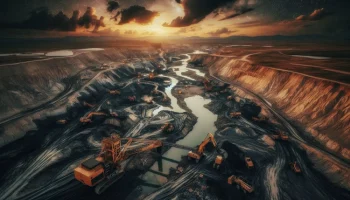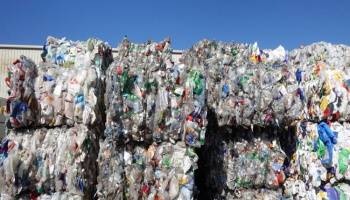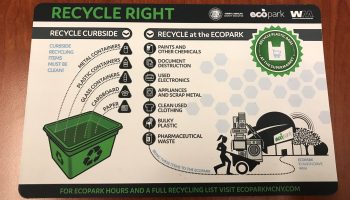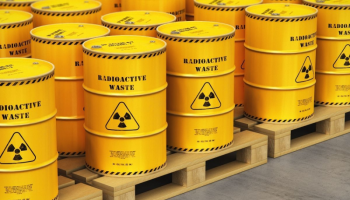The science of waste management
The science of waste management encompasses various disciplines and principles that are applied to effectively handle and dispose of waste materials. It involves the study of waste generation, collection, transportation, treatment, and disposal methods, with the goal of minimizing environmental impacts and maximizing resource recovery. Here are eight key aspects of the science of waste management:
Waste Characterization: Understanding the composition and characteristics of different types of waste is essential for designing appropriate management strategies. Waste characterization involves analyzing waste streams to determine their physical, chemical, and biological properties, which helps in selecting appropriate treatment and disposal methods.
Waste Minimization and Source Reduction: One of the primary goals of waste management science is to minimize waste generation at its source. This includes promoting sustainable consumption practices, implementing recycling and composting programs, and encouraging the use of eco-friendly products and packaging materials to reduce waste generation.
Collection and Transportation: Efficient collection and transportation systems are crucial for waste management. The science of waste management involves developing optimized collection routes, selecting appropriate collection equipment, and designing efficient transportation methods to ensure timely and cost-effective waste removal from residential, commercial, and industrial areas.
Recycling and Resource Recovery: Waste management science emphasizes the importance of recycling and resource recovery. It involves identifying recyclable materials, establishing recycling infrastructure, implementing separation and sorting techniques, and developing processes to convert waste into valuable resources through recycling, composting, and energy recovery methods.
Waste Treatment Technologies: Waste treatment technologies focus on transforming waste into less harmful or more manageable forms. These technologies include physical, chemical, and biological processes such as incineration, landfill gas capture, anaerobic digestion, composting, and mechanical-biological treatment. The selection of appropriate treatment methods depends on the characteristics of the waste and desired environmental outcomes.
Landfill Design and Management: Landfills play a significant role in waste management, particularly for non-recyclable and non-recoverable waste. The science of waste management involves designing and operating landfills with proper engineering controls to prevent groundwater contamination, control gas emissions, and minimize environmental risks associated with waste disposal.
Environmental Impact Assessment: According to this website, assessing the environmental impacts of waste management activities is essential for sustainable decision-making. This includes evaluating the potential risks and impacts on air quality, water resources, soil health, and ecosystems. Environmental impact assessments guide the selection of waste management practices that minimize environmental harm and ensure compliance with regulatory standards.
Policy and Regulations: Effective waste management relies on robust policies and regulations. The science of waste management involves developing and implementing legislative frameworks, standards, and guidelines that govern waste management practices. These policies address waste reduction, recycling targets, hazardous waste management, pollution prevention, and other key aspects of waste management to protect public health and the environment.
By integrating these scientific principles and practices, waste management professionals strive to minimize the environmental and social impacts of waste generation, promote resource efficiency, and move towards a more sustainable and circular economy. The ongoing advancements in waste management science contribute to the development of innovative technologies and strategies that aim to address the challenges posed by waste and contribute to a cleaner and more sustainable future.
The science of recycling
The science of recycling encompasses a wide range of disciplines and processes that contribute to the efficient and sustainable recycling of materials. Recycling involves converting waste materials into new products or raw materials through various scientific methods. Here are eight key aspects of the science of recycling:
Material Identification and Sorting: The science of recycling begins with identifying and sorting different types of materials. This process involves scientific techniques such as visual inspection, automated sorting systems, and advanced technologies like near-infrared spectroscopy to identify and separate different recyclable materials such as plastics, paper, metals, and glass.
Collection and Transportation: Efficient collection and transportation systems are vital for successful recycling. The science of recycling includes designing optimized collection routes, selecting appropriate collection equipment, and implementing efficient transportation methods to ensure that recyclable materials are collected and transported to recycling facilities effectively.
Material Processing and Preparation: Once recyclable materials are collected, they undergo processing and preparation. This includes steps such as cleaning, shredding, and crushing to transform the materials into a suitable form for recycling. Scientific methods and technologies are employed to ensure the materials are processed efficiently and effectively.
Recycling Technologies: The science of recycling involves the application of various recycling technologies. These technologies differ depending on the material being recycled. For example, plastics may undergo processes such as melting, extrusion, and pelletization, while metals may undergo smelting and refining. Scientific knowledge is applied to develop and optimize these recycling technologies.
Quality Control and Testing: Quality control and testing play a crucial role in recycling to ensure that the recycled materials meet the required standards and specifications. Scientific testing methods are used to assess the quality, purity, and composition of the recycled materials. This ensures that the recycled products meet the necessary criteria for use in manufacturing new products.
Life Cycle Assessments: Life cycle assessments (LCAs) are scientific tools used in recycling to evaluate the environmental impacts associated with the entire life cycle of a product, from extraction of raw materials to production, use, and disposal. LCAs help identify the environmental benefits and trade-offs of recycling processes, enabling informed decision-making and continuous improvement in recycling practices.
Research and Development: The science of recycling involves ongoing research and development efforts to enhance recycling technologies, improve recycling rates, and find innovative solutions to recycling challenges. Scientists and engineers work on developing new recycling processes, exploring new materials for recycling, and finding ways to address issues such as contamination and recycling efficiency.
Policy and Education: The science of recycling extends beyond technical aspects to include policy development and education. Scientists and researchers contribute to the development of recycling policies and regulations that promote recycling and support a circular economy. Additionally, educational initiatives based on scientific knowledge aim to raise awareness about recycling, teach proper recycling practices, and inspire individuals and communities to participate in recycling efforts.
By applying the science of recycling, we can maximize the recovery of valuable resources, reduce waste sent to landfills, conserve energy and natural resources, and minimize the environmental impacts associated with the production of new materials. Continued scientific advancements in recycling contribute to the development of more efficient and sustainable recycling systems, furthering our efforts towards a circular economy and a greener future.






